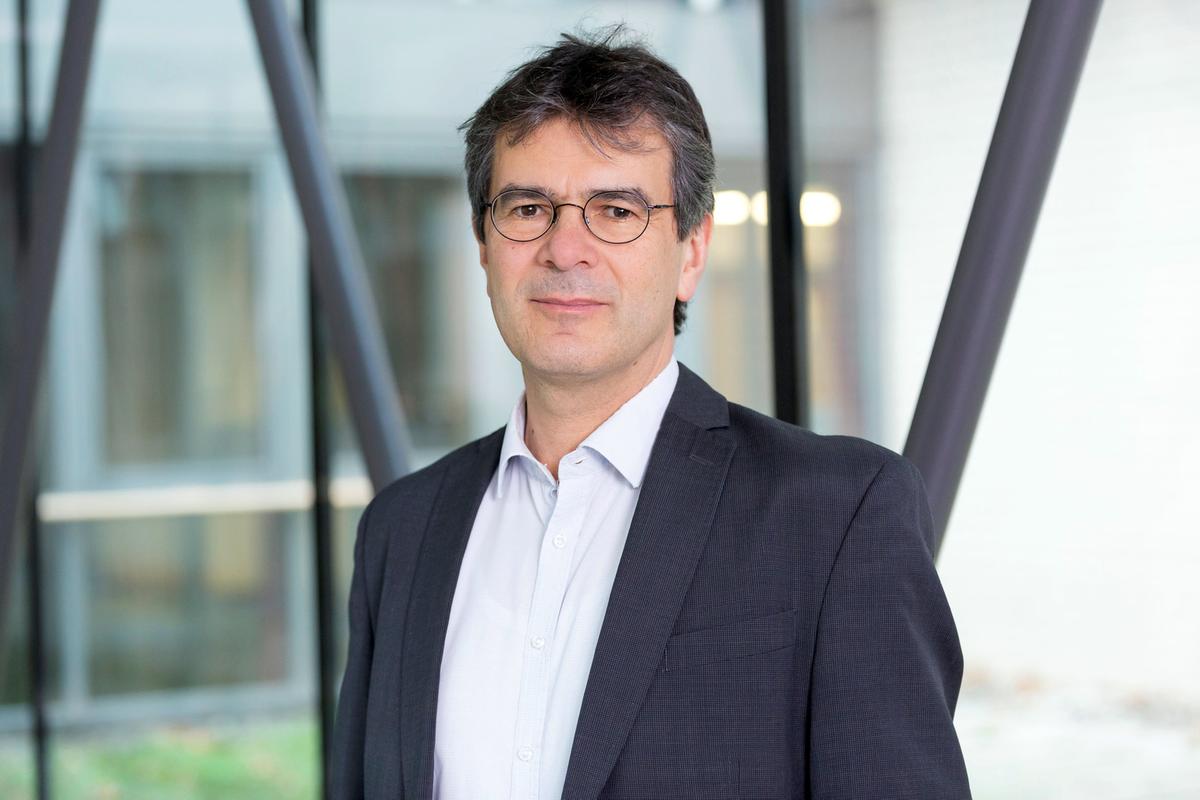Head of Epidemiology at the HZI takes over a new department at the World Health Organisation in Geneva.

With a new task in the WHO: Gérard Krause Copyright: Verena Meier/HZI
Stand: 22. February 2023
After twelve years as head of the Department of Epidemiology at the Helmholtz Centre for Infection Research (HZI) in Braunschweig, Prof Gérard Krause is moving to the World Health Organization (WHO) where he will become the director of a newly established department for "Surveillance Systems" on 1 March 2023. Under his leadership, various digital health tools such as SORMAS, PIA and SafeVac were developed and brought to market at the HZI, new laboratory diagnostic methods were developed, and several large epidemiological population studies were conducted. In addition to his position at the HZI, Krause also holds affiliations with Hannover Medical School (MHH), the German Center for Infection Research (DZIF), the NAKO Health Study and TWINCORE. He was also active in the RESIST Cluster of Excellence, which is headed by the MHH.
Dedicated educational work on the Corona pandemic
"As an internationally renowned epidemiologist, Gérard Krause has made several significant contributions to research and the strategic direction of the HZI over the past twelve years. In particular, the development and national and international implementation of SORMAS as well as his great personal commitment to public information during the COVID-19 pandemic were contributions of particularly high societal value," says Prof Dirk Heinz, Scientific Director of the HZI. "His new prominent position at the WHO is a special honour for him as a scientist and a special appreciation of our researchers who are working to better control current and future infectious disease outbreaks. At the same time, we regret Gérard Krause's imminent departure, which will leave a big gap for the time being."
After obtaining his doctorate in tropical hygiene in 1993, the physician Gérard Krause initially worked in internal medicine, tropical medicine, hospital hygiene and epidemiology in Germany and the USA. In 2000, he moved to the Robert Koch Institute as head of department and later head of division. After his habilitation in 2005, he was appointed Chair of Infectious Disease Epidemiology at the Hannover Medical School and to the HZI as head of the Department of Epidemiology in 2011. Krause is a co-founder of the NAKO Health Study, a large cohort study on health in Germany, and in 2013 he founded Germany's first doctoral programme in epidemiology. In 2016, he became director of the newly established Institute for Infectious Disease Epidemiology at TWINCORE, Centre for Experimental and Clinical Infection Research. From 2016 to 2017, he was President of the German Society for Epidemiology and from 2016 to 2020, he was Coordinator of the “Infrastructure Epidemiology" of the German Center for Infection Research (DZIF).
"Prof Krause has rendered outstanding services to the pandemic response in Germany through his work at the HZI. In addition to his infection research, he also played a major role in setting up the SORMAS surveillance system. This way the data on infection incidence could be pooled and processed for decision-makers, which was key to manage and overcome the pandemic. I wish him every success in regarding his new tasks at the WHO and am sure that he will continue to advance the WHO in the area of surveillance with his know-how," says Secretary of State Judith Pirscher, Federal Ministry of Education and Research (BMBF).
New task: approaching epedimia monitoring holistically
Krause will take over as head of the newly established department for "Surveillance Systems" at the WHO in Geneva. The department will promote international exchange on and synchronisation of the most varied early warning and monitoring systems for infectious diseases. Together with experts from all WHO regions, national public health agencies and the scientific community, the department will develop international standards and support countries in strengthening their surveillance systems to improve our collective ability to detect epidemics and pandemics at an early stage and contain them in a targeted manner. "Tackling epidemic surveillance in such a holistic and comprehensive way is a real opportunity to better protect the world from future epidemics," says Gérard Krause. "However, the task is huge. I would like to make my contribution to this."
"Over the past years, Gérard Krause has shown time and again how research and innovation in the field of early warning and surveillance systems can be brought together. With him on the team, we can now work to make this experience useful for the benefit of all WHO Member States," says Dr Chikwe Ihekweazu, Assistant Director-General at WHO leading the Division of Health Emergency Intelligence & Surveillance Systems, which includes the WHO Hub for Pandemic and Epidemic Intelligence.